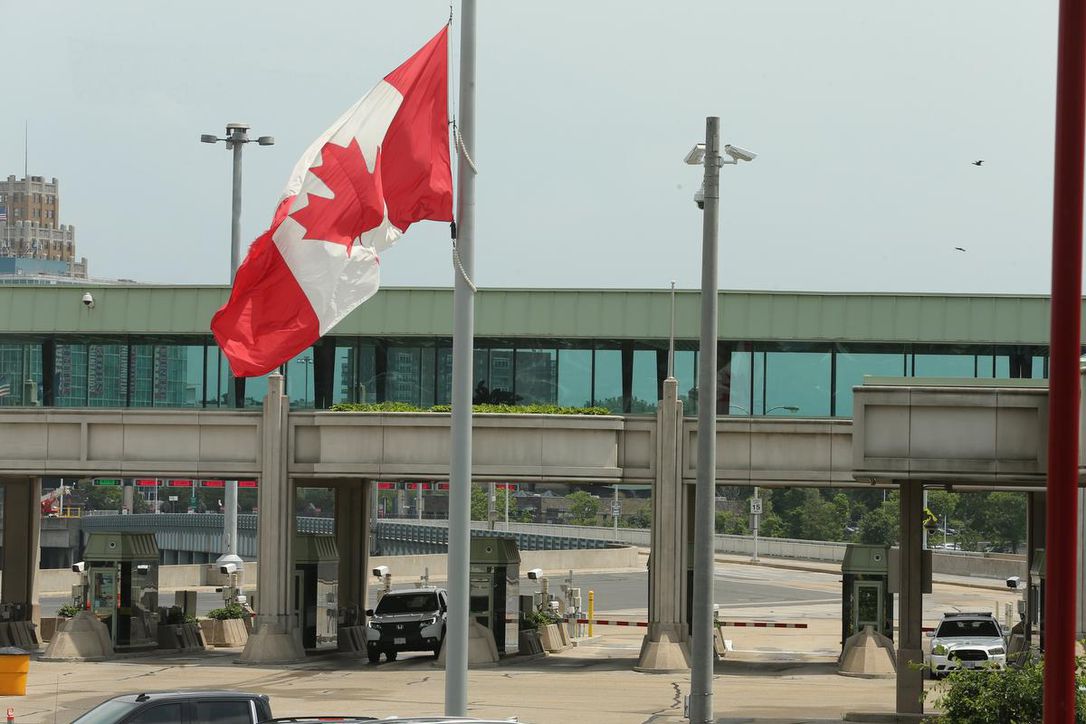July 5, 2021, Toronto Star – Easing of border restrictions falls short, travel and tourism industry members say

Toronto Star article can also be viewed here.
The Canadian travel and tourism industry isn’t impressed with Monday’s slight easing of border restrictions, and is calling on the federal government to release a clear plan for the reintroduction of leisure and business travel so companies can plan for the difficult months ahead.
As of Monday, Canadians and permanent residents who are fully vaccinated won’t be required to go through a two-week quarantine period, or stay three days in a government-approved hotel when they re-enter the country.
However, if Canadian travellers weren’t eligible to travel to Canada before Monday, July 5, they still won’t be able to travel; the change only applies to those who were already allowed to travel across the border, such as essential workers.
Travellers must use the ArriveCAN app or web portal to log their vaccination details and proof of a negative COVID-19 test. The travel restrictions at the border are currently due to expire July 21.
Beth Potter, president and CEO of the Tourism Industry Association of Canada, said Monday’s change gives the industry a sense of hope that Canadians will become more confident travelling not only internationally, but domestically.
“This is a clear message that it’s safe to start travelling again,” said Potter.
However, she said it doesn’t do much for Canadian businesses still waiting to welcome international — especially American — tourists.
Adding salt to the wound is the gradual winding down of the wage and rent subsidies, which begins this week, said Potter, despite the fact many businesses are still hanging on by a thread.
“The situation is precarious,” she said.
Mike McNaney, president and CEO of the National Airlines Council of Canada, said Canadian airlines are looking to reopening plans in other countries as they try and plan for the future.
“We don’t have a plan, we have a puzzle,” he said.
Wendy Paradis, president of the Association of Canadian Travel Agencies, said she thinks there’s a public perception that a lot is changing Monday, but characterized the move as one small step.
The association had hoped to hear that double-vaccinated American visitors would be allowed into Canada, said Paradis, and so the government’s announcement about vaccinated Canadians fell short.
“It does not help the Canadian tourism industry at all,” she said, adding that the announcement was a “significant blow.”
Paradis said since the borders are still closed to American tourists and business travellers, and the federal wage and rent subsidies are beginning to wind down this week, Canadian businesses are going to struggle through a second summer.
McNaney said the government is being overly cautious, especially compared not only to other countries but also its own provinces, about releasing a concrete plan for the coming months. He’s also concerned that an election will be called before his industry is given clear steps for reopening the border.
Paradis said ACTA is frustrated over the lack of transparency from the federal government.
“What is the next step? What is the plan?” she asked. “What is the criteria to actually move, so that fully vaccinated Americans or other travellers are able to enter Canada?”
Mark Agnew, vice-president of policy for the Canadian Chamber of Commerce, said Monday’s change will be helpful for Canadian business travel, but it doesn’t do much for businesses that rely on travel from outside Canada.
“It is disappointing that we don’t have a plan,” said Agnew, adding, “it’s not for lack of trying on our part.”
He said he understands that the federal government is exercising caution, but said businesses across the country are looking for some sense of the benchmarks that could allow them to welcome international tourists after a long hiatus.
Lindsay Broadhead, communications director for the Toronto Region Board of Trade, said Toronto has lost billions from the absence of not only tourism, but business travel.
Much of business travel, especially large events such as conferences, is planned ahead of time, she said, meaning that for many companies, it’s already too late to book for 2021.
So Monday’s easing of restrictions isn’t a big celebration, said Broadhead: “Let’s not run our victory lap yet.”
Meanwhile, Broadhead said the waning of the federal subsidies is too soon, and may prompt a wave of bankruptcies before businesses have a chance to recover.
Like the other associations, the Board of Trade is calling on the federal government for a plan, especially for international travel into Canada.
Consumer polls tell ACTA that Canadians are very interested in travelling once they are fully vaccinated, said Paradis, and agencies are seeing an increase in the number of people interested in booking for the fall and holiday season.
“Canadians are very hopeful for 2022,” she said.
Porter Airlines suspended its flights due to the pandemic more than a year ago, and has pushed back the date it plans to resume flights a few times, most recently to Sept. 8. It will begin its restart in phases, beginning with domestic flights before introducing American destinations.
Ryan Killeen, general manager of Toronto hotel The Annex, said for businesses like his, Monday’s restriction change gives him hope, even if he can’t welcome international visitors just yet.
“I think that this is a huge first step,” he said.
Despite the still mostly closed border, Killeen is seeing that confidence reflected in his customers. The volume of bookings has increased, he said, especially for the fall, and many of the people booking are from out of the country.
He’s been relieved to find that even business travel looks like it will pick up again when the government allows it.
“There’s a new type of optimism out there.”

